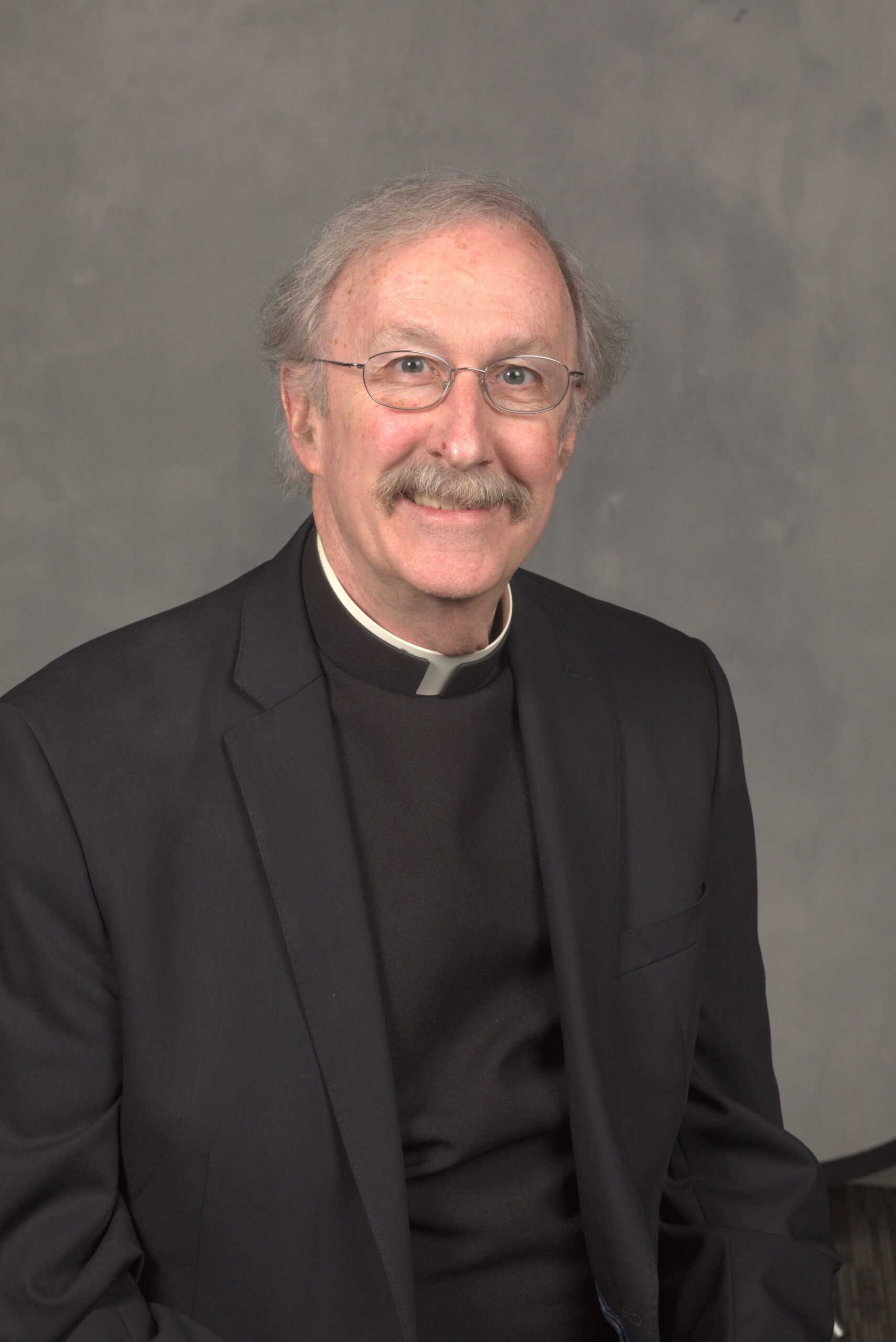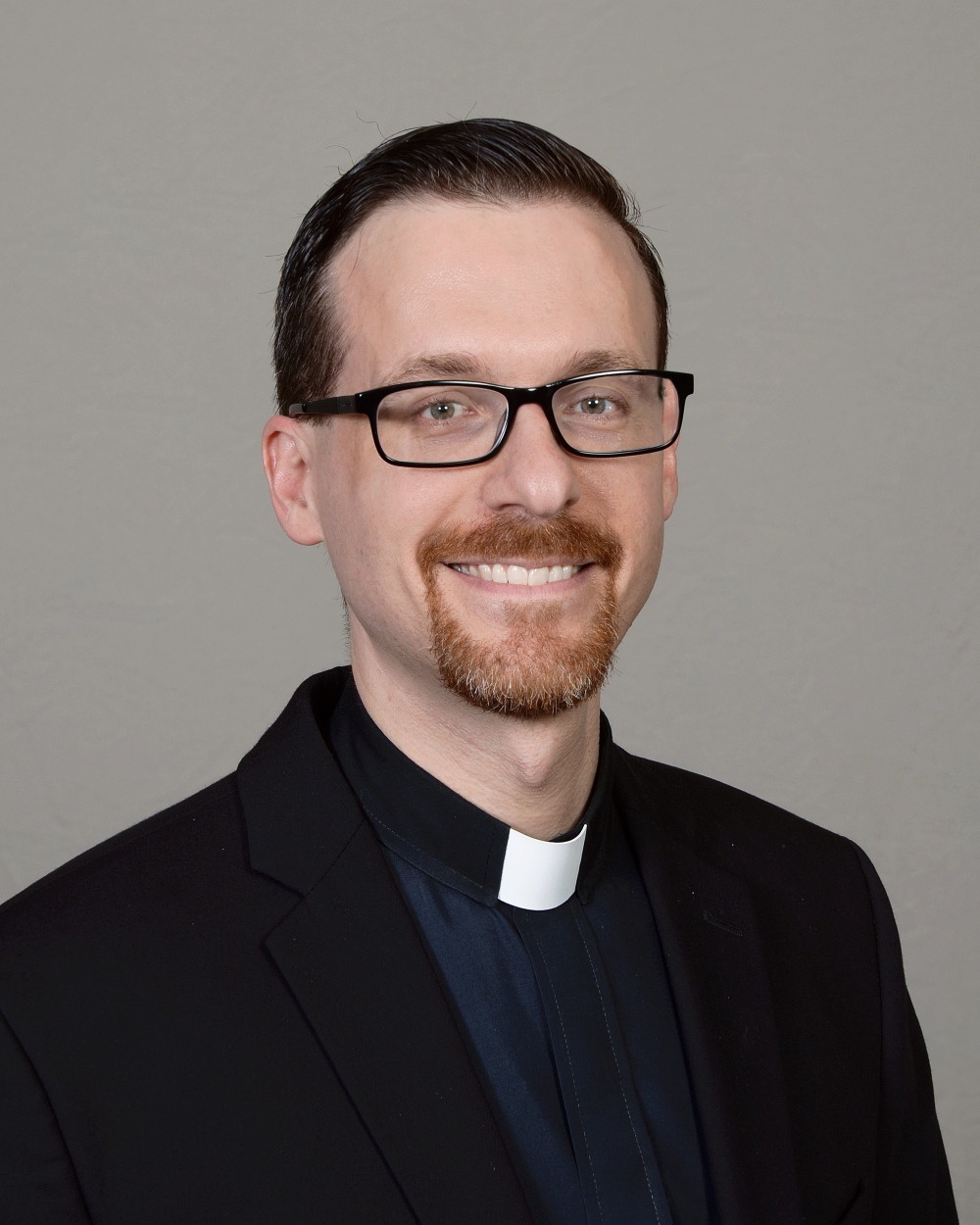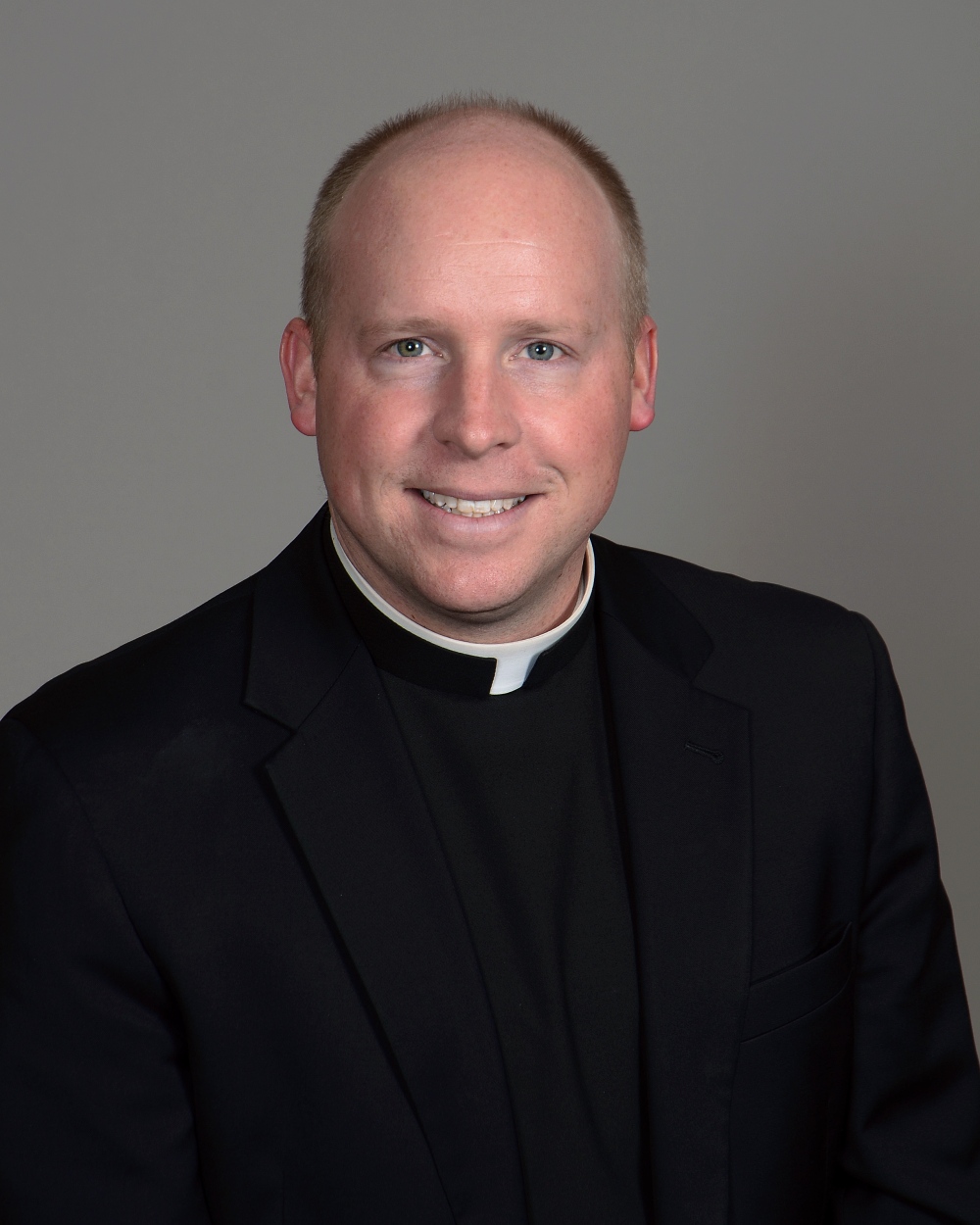Fr. Bill Hammer
 Parents are the first teachers of their children in so many aspects of the child’s life. They teach them about safety, self-care, how to get along with others, how to share, and certainly are the first teachers of the faith. There are many aspects of the faith that are taught by both words and example. In the Baptismal ritual, after requesting their child’s Baptism, parents are then asked, “In asking for Baptism for your child, you are undertaking the responsibility of raising him/her in the faith, so that, keeping God’s commandments, he/she may love the Lord and his/her neighbor as Christ taught us. Do you understand this responsibility?” If the child is an infant, then the need for the building blocks of the faith, should be treated as the same importance as the building blocks for life. Parents begin with teaching recognition of people, and colors, and toys, and in time the alphabet. So, parents should begin with the building blocks of the Sign of the Cross, the Lord’s Prayer, the Hail Mary, the Glory Be, and thank you prayers, such as before meals as well as praying to God for our needs or the needs of others. Talk with your children about the Church’s seasons of the year such as Advent, Christmas, Lent, and Easter, and what that season tells us about God, and Jesus, and Mary.
Parents are the first teachers of their children in so many aspects of the child’s life. They teach them about safety, self-care, how to get along with others, how to share, and certainly are the first teachers of the faith. There are many aspects of the faith that are taught by both words and example. In the Baptismal ritual, after requesting their child’s Baptism, parents are then asked, “In asking for Baptism for your child, you are undertaking the responsibility of raising him/her in the faith, so that, keeping God’s commandments, he/she may love the Lord and his/her neighbor as Christ taught us. Do you understand this responsibility?” If the child is an infant, then the need for the building blocks of the faith, should be treated as the same importance as the building blocks for life. Parents begin with teaching recognition of people, and colors, and toys, and in time the alphabet. So, parents should begin with the building blocks of the Sign of the Cross, the Lord’s Prayer, the Hail Mary, the Glory Be, and thank you prayers, such as before meals as well as praying to God for our needs or the needs of others. Talk with your children about the Church’s seasons of the year such as Advent, Christmas, Lent, and Easter, and what that season tells us about God, and Jesus, and Mary.
Maybe, a way to teach children the importance of prayer is to understand what prayer is. For a child, prayer can be likened to a conversation, it helps to build a friendship/relationship with God. A child understands that you can’t be a good friend if you never talk to your friend. Would you be a good friend if you never spend time together? Just like your friends, the more time you spend together, the better you get to know God and understand God’s care for you and what God wants you to know and understand about Him.
Parents begin by modeling for their children the prayers that they want to teach them. The children should hear their parents praying out loud and practice making the Sign of the Cross with them. I always smile when I observe parents teaching their young children how to bless themselves with Holy Water and the Sign of the Cross upon entering the church. I have fond memories of my parents leading us in prayers before eating and in family prayers at nighttime or praying the rosary. As the child grows in comfort and with practice, to then encourage them into taking turns leading prayer, especially the meal prayers. Upon coming home at the end of the day, if you are asking your child how their day went; you could also ask, is there anything or anyone for whom we should pray for today? When traveling to Mass, begin practicing some of the congregation responses at Mass, or on the way home asking if they have any questions about what they saw or heard. During Mass, it can help younger children to have a missalette or prayer book with the various prayers and to point out to the child where the prayers are found that are being said, so the child can read along while praying aloud. For younger children get a picture book or coloring book about the Mass or have them draw pictures about what they are seeing and hearing.
Helping them to feel comfortable coming to church, it might be nice to introduce them to the priest or some of the liturgical ministers so that they are not entering a “place” filled with strangers, but people whom they feel like they know and who will know them. Also, I encourage you to consider sitting up towards the front, it is very hard for anyone, regardless of age, to feel at home if they can’t see what is going on.
We all know how children are like little sponges that absorb whatever is before them, for good or for bad. So, allowing them to observe their parents and grandparents and siblings in prayer and making it a “special time” together, will help cultivate a life of prayer. A way to help children feel comfortable in prayer time is to hold their hands, it generally makes children feel more comfortable and can help to better direct their short attention span. Another valuable lesson about prayer is that it helps in developing that “attitude of gratitude,” and expressing gratitude to God in prayer is being a good steward with one’s time and teaches them that you set aside time for regular prayer in your life. If we are too busy to pray as a family or with our children, then . . . . . . we are too busy.
Fr. Matthew Hardesty
- Why is it important to teach children about prayer?
 It is important to teach children about prayer because prayer is how we come to have a real, personal relationship with God. Prayer helps children to know that God is close to them – a loving Father – rather than a distant God, or worse yet, an abstract notion. Jesus becomes an actual friend. The Holy Spirit really does light, guard, rule, and guide their lives. When they are taught at a young age to pray, they regard prayer as a normal, everyday part of their lives rather than as something to squeeze in or as a distraction from other things they’d rather be doing. It becomes essential. It becomes something they easily turn to in joy and in sorrow and in the mundane experiences of life. And as they pray for others, their hearts become more generous. They also more easily participate in, and feel at-home in, the Mass and the sacraments when they are used to praying.
It is important to teach children about prayer because prayer is how we come to have a real, personal relationship with God. Prayer helps children to know that God is close to them – a loving Father – rather than a distant God, or worse yet, an abstract notion. Jesus becomes an actual friend. The Holy Spirit really does light, guard, rule, and guide their lives. When they are taught at a young age to pray, they regard prayer as a normal, everyday part of their lives rather than as something to squeeze in or as a distraction from other things they’d rather be doing. It becomes essential. It becomes something they easily turn to in joy and in sorrow and in the mundane experiences of life. And as they pray for others, their hearts become more generous. They also more easily participate in, and feel at-home in, the Mass and the sacraments when they are used to praying.
- Where do we begin?
I’m not sure what childhood development experts would say. It seems to me we begin with time and family. I’ll never forget, when I was little, how my dad would come home late at night from work. Rather than obeying our mother and going to sleep, my three brothers and I would often be found teasing and playing with each other. My dad would first have us all gather on one bed and take three deep breaths to calm down. Then he would take a prayer card out of his work shirt pocket and teach us that prayer line-by-line until we had it memorized. Then he would teach us another prayer. He would also guide us through a list of the names of our family, ending with those who were in most need. “God bless Grandmommy and Peepaw and all their families. God bless Momma Carol and Grandpa Frank and all their families. God bless Mommy, God bless Daddy, God bless Nicholas, God bless Matthew, God bless Andrew, God bless Benjamin, God bless Grandmother, and God Bless Uncle Mike.” I’ve been praying for my Uncle Mike for 40 years and I have no idea what he needed so long ago! It doesn’t matter. The point is, when you start with family, and routine, and memorization, prayer becomes a habit.
- What are your top tips for teaching children how to pray?
I would recommend making prayer both formal and informal, and showing how it meets their needs. For example, to conclude our prayers, my dad taught us to say “Goodnight.” Isn’t this what every child needs before he goes to bed, to be told “Goodnight” and to tell others the same? This little ritual re-asserts family bonds before the children depart to solitude. We would say, “Goodnight Sweet Jesus, Goodnight Blessed Mother, Goodnight St. Joseph, Goodnight Angels and Saints.” This made us feel that the Holy Family and the Saints where part of our family and we a part of Theirs. My second tip is more formal: Take them to Sunday Mass and Holy Days of Obligation. Even if they are fussy and don’t understand, by being in the midst of a Praying People, each child starts to identify himself as a Praying Person. My last tip is to not underestimate them. Children love beauty and are capable of embracing it. Teach them a prayer from your ethnic heritage or a Latin chant to nurture their awe and wonder. Start small and simple and add more gradually and the child will keep doing so throughout life.
Fr. Shayne Duvall
- Why is it important to teach children about prayer?
 Children love to talk, well at least I talked a lot as a child. What is prayer but a conversation – talking with God. There is a second part that many children and adults struggle with and that is listening. In prayer we do most of the talking. It is important to teach our children at a very young age why it is so important to talk to God and why it is so important to listen to what God has to say to us. Don’t be afraid to tell God whatever you want. Don’t be afraid to ask God questions. Don’t be afraid to tell God whatever is in your heart. What is the saying…Children Say the Darndest Things? God loves to hear some of the darndest things that come from our lips and it is important that we teach our children how to pray. Start with the simple three: the Our Father, the Hail Mary, and the Glory Be. You can never go wrong with these. If we teach our children about prayer – about having a conversation with God – then they will have the simple foundation to teach their children how to pray one day as well.
Children love to talk, well at least I talked a lot as a child. What is prayer but a conversation – talking with God. There is a second part that many children and adults struggle with and that is listening. In prayer we do most of the talking. It is important to teach our children at a very young age why it is so important to talk to God and why it is so important to listen to what God has to say to us. Don’t be afraid to tell God whatever you want. Don’t be afraid to ask God questions. Don’t be afraid to tell God whatever is in your heart. What is the saying…Children Say the Darndest Things? God loves to hear some of the darndest things that come from our lips and it is important that we teach our children how to pray. Start with the simple three: the Our Father, the Hail Mary, and the Glory Be. You can never go wrong with these. If we teach our children about prayer – about having a conversation with God – then they will have the simple foundation to teach their children how to pray one day as well.
- Where do we begin?
Well, our children need to see us in prayer. What is the highest form of prayer in the Catholic Church? The Mass! This is where we begin. We must allow our children to experience the beauty of prayer in the Sunday celebration of the Mass. This is where our children will see us praying together and as individuals. This is where children will become active participants, and when the Deacon or the Priest tells us to “Go in Peace,” then we will take that prayer and that experience into our homes, work places, schools, and in our community. I think it is also important that we make time to pray as a family. Do we pray before meals? Do we pray on the way to school? Do we pray before we go to sleep? Parents are the primary teachers of their children in the matters of faith and leading by example can go a very long way. Don’t ever be afraid to pray in front of your children. They are watching you and they will model what you say and do.
- What are your top tips for teaching children how to pray?
Learn the three basic ones that I mentioned before. Every child should know the Our Father, the Glory Be, and the Hail Mary.
Pray as a family at least once a day. Let the children listen to and learn from the parents.
Come to Mass as a family every weekend.
Have your child(ren) tell God one thing they are thankful for every day and have them ask God to help someone every day.
Teach them not to be afraid of silence. In fact, make time for silence, for in the silence is where God will speak to them the most.


